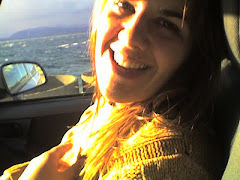
When I was a teenager, I wondered so many times when I was going to do what I wanted. So much, that I asked to a Psychology teacher: “when am I going to become independent?”
I remember she answered, “when you would be financiary independent”. But I have to tell you that she didn´t give me a hand. I think that she couldn’t understand what I was talking about. I was talking about of taking decisions freely. It was as if I was always looking for my parents’ disaprroval.
Today, I wonder what would have happened if Savater had been my dad and had told me, “do what you what”. It would have been a disaster!!. Because as a teenager, I wouldn’t have thought twice before making a decision and many of the results wouldn’t be convinient for me or for others. But thinking this twice I wonder what have have happened?? Who knows….
Now, as an adult, I wish I was a teenager to have the same energy to decide on issues without being scared of (bad) consequences.
I remember she answered, “when you would be financiary independent”. But I have to tell you that she didn´t give me a hand. I think that she couldn’t understand what I was talking about. I was talking about of taking decisions freely. It was as if I was always looking for my parents’ disaprroval.
Today, I wonder what would have happened if Savater had been my dad and had told me, “do what you what”. It would have been a disaster!!. Because as a teenager, I wouldn’t have thought twice before making a decision and many of the results wouldn’t be convinient for me or for others. But thinking this twice I wonder what have have happened?? Who knows….
Now, as an adult, I wish I was a teenager to have the same energy to decide on issues without being scared of (bad) consequences.





